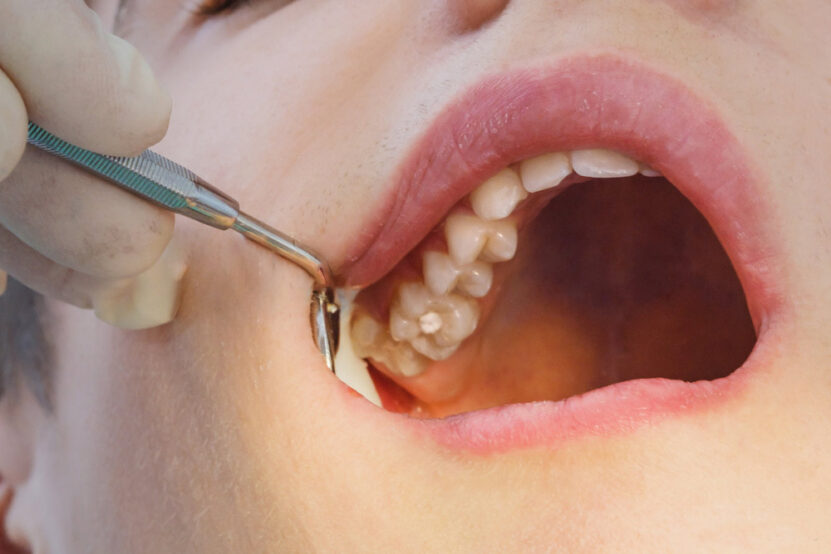Oral discomfort is an unfortunate experience that many people encounter in their lives. From unexpected throbbing to a lingering dull ache, the sensation often leaves us confused and seeking answers. Is it your wisdom teeth acting up or is it a sign of Temporomandibular Joint Disorder (TMJ)?
In this comprehensive blog post, we’ll explore various clues and factors that can help you identify the root cause of your oral pain. Wolli Creek Wisdom teeth removal has you covered in both cases so check this site for more information.
Location and Characteristics of Oral Pain

Let’s embark on this educational journey by understanding the location and traits of oral discomfort. If the pain is localized at the back of your mouth, specifically around your last molar, it’s often indicative of a wisdom tooth issue. This discomfort may intensify when you open your mouth wide, eat, or when your teeth make contact with each other. The pain can be sharp, intermittent, or develop into a persistent dull throb that doesn’t seem to go away.
On the contrary, if the discomfort is more widespread, involving the lower face, jaw, neck, or even extending to your ear, this could hint at a problem with the Temporomandibular Joint (TMJ). TMJ pain tends to be a chronic, aching type of discomfort, often worsening during jaw movements like chewing, talking, or yawning. You may also notice a clicking or grating sensation when you move your jaw.
Wisdom Teeth Symptoms and Indicators
When it comes to wisdom teeth, there are specific signals to watch for. Beyond the location and characteristics of the pain, signs such as swelling around the jaw, redness, or bleeding gums can point to an issue with wisdom teeth. You may also experience difficulty opening your mouth, bad breath, or a bad taste in the mouth due to an infection called pericoronitis.
Additional symptoms can include impacted teeth – where the wisdom teeth don’t have enough room to emerge or grow. This is often diagnosed through X-rays at a dental check-up and can lead to cysts, damage to adjacent teeth, and even bone loss. Wisdom tooth problems typically arise between late teens and early adulthood, so age can be another indicative factor.
TMJ Symptoms and Indicators
Identifying TMJ disorder requires understanding the broader, more systemic signs. If your oral discomfort is accompanied by frequent headaches, earaches, or facial pain, TMJ might be the culprit. A distinctive feature of TMJ disorders is a clicking or popping sound when opening or closing your mouth, or even while chewing.
Many people with TMJ disorders notice a change in their bite or the way their upper and lower teeth fit together. You may also experience jaw locking, making it difficult to open or close your mouth. Just like wisdom teeth problems, TMJ disorders can occur at any age but are more common among young to middle-aged adults, especially women.
Factors Contributing to Wisdom Teeth Problems

Understanding the factors contributing to wisdom tooth complications can help identify their potential presence. A key factor is the size of your jaw. If it’s too small to accommodate an extra set of molars, your wisdom teeth may become impacted, leading to pain and other complications. Genetics can also play a role – if your parents had issues with their wisdom teeth, chances are you might too.
Unmaintained oral hygiene could be another trigger. Wisdom teeth are notoriously hard to clean because of their location, which makes them more prone to cavities and gum disease. Age plays a role too – most problems surface when the wisdom teeth are erupting, typically between the ages of 17 and 25.
Factors Contributing to TMJ Issues
As for TMJ disorders, they often result from a variety of factors. Stress is a significant one. Chronic stress can lead to teeth grinding or clenching, often during sleep, which puts excessive pressure on the TMJ. Structural problems due to injury or arthritis in the joint could lead to TMJ disorders as well.
Postural problems can contribute to TMJ pain. Poor posture in the neck and upper back can lead to neck strain and abnormalities of jaw muscle function. Over time, this can lead to TMJ discomfort. Women in their childbearing years are more likely to experience TMJ disorders, suggesting that hormonal factors might play a role as well.
Differentiating Between Pain
Discerning between the wisdom tooth and TMJ pain can be challenging, but there are key differences. If the pain is localized to the back of the mouth and is accompanied by gum redness, swelling, or bad breath, it’s more likely to be wisdom tooth-related. If it involves the entire jaw, with clicking sounds, headaches, and even neck pain, it leans more toward a TMJ disorder.
In contrast, some indicators could suggest either. Jaw discomfort, for example, might be caused by an impacted wisdom tooth or a TMJ disorder. Similarly, difficulty opening the mouth could be due to either swollen gums from a wisdom tooth infection or jaw locking from a TMJ disorder.
When to Seek Professional Dental Evaluation

Understanding when it’s time to seek professional help is crucial. If oral pain persists for more than a few days, it’s time to consult a dental professional. Other red flags include severe pain, difficulty opening your mouth, bleeding gums, and signs of infection like fever and pus.
Don’t put off making an appointment if your symptoms are affecting your quality of life. If you’re unable to chew food properly, have persistent headaches, or your sleep is disturbed due to discomfort, it’s time to seek help. Remember, early intervention can prevent complications and lead to better outcomes.
Home Remedies for Either
While seeking professional help is paramount, some home remedies can provide temporary relief. For both wisdom tooth and TMJ pain, over-the-counter pain relievers and anti-inflammatories can help. Applying a cold pack to the area can also reduce swelling and numb the pain.
Practices such as salt water rinses can help with wisdom tooth pain, especially if there’s inflammation or a minor infection. For TMJ disorders, implementing stress reduction techniques like yoga or meditation, or using a mouth guard to prevent teeth grinding, can offer some respite. Remember, these remedies are not substitutes for professional care but can provide interim relief until you can see a dental professional.
Wrapping Up
We’ve navigated through a labyrinth of oral discomfort today, exploring how to differentiate between wisdom teeth and TMJ-related pain. It’s essential to remember that persistent pain is your body’s cry for help. It’s crucial to seek professional dental evaluation when discomfort persists or significantly disrupts your daily life.
Home remedies can provide temporary relief, but they can’t replace the expertise of a dental professional. So, don’t ignore the signals your body is sending you, and take action promptly. It’s always better to be safe, ensuring your radiant smile remains intact for years to come!
